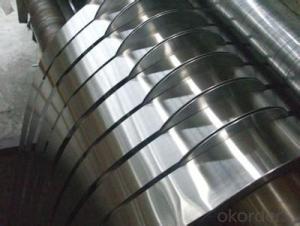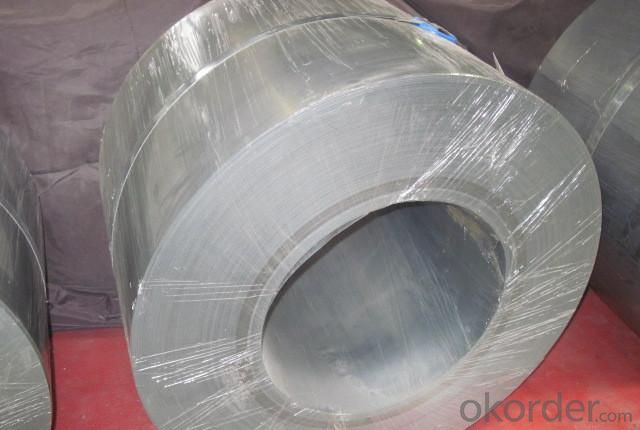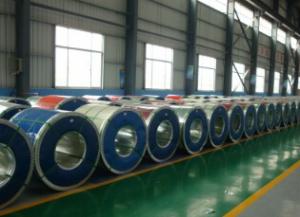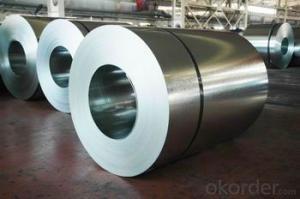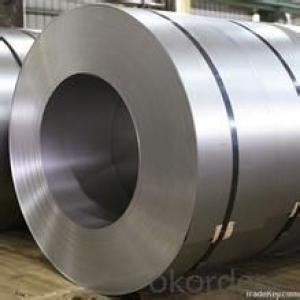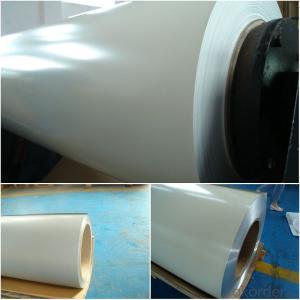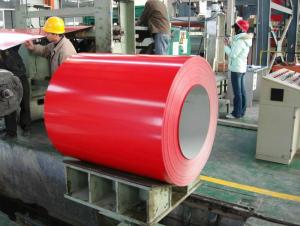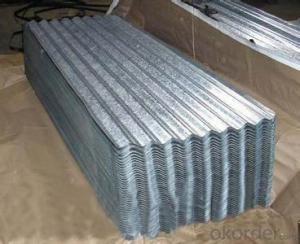Silicium steel coils and sheets
- Loading Port:
- China Main Port
- Payment Terms:
- TT OR LC
- Min Order Qty:
- -
- Supply Capability:
- -
OKorder Service Pledge
Quality Product, Order Online Tracking, Timely Delivery
OKorder Financial Service
Credit Rating, Credit Services, Credit Purchasing
You Might Also Like
Packaging & Delivery
| Packaging Detail: | as requirements |
| Delivery Detail: | 7-15days |
Specifications
Cold Rolled Oriented Silicon Steel
Grade:M50W600,M50W800,M50W1000,M50W1300D
T:0.5MM
W:1000/1050/1150/1250MM
| commodity | Cold Rolled Non Grain Oriented Steel |
| grade | M50W600,W800,W1000,W1300,W1300D |
| suraface treament | slightly oiled, Non alloy steel sheet |
| Thickness | 0.5mm |
| Widness | 1000/ 1050/ 1150/1200mm |
| ID coil | 508mm / 610mm |
| MIQ | 25MT for each size |
| Package: | properly packed for ocean freight exportation in 20'' container |
| Price validity time | 5 working days |
| Payment terms | 30%TT in advance+70% irrevocable L/C at sight |
| Delivery tolerance | +/- 5% on both quantity and value |
| delivery time | 40 days after recepit of 30% TT |
| Remarks | MTC 3.1 will be handed on with shipping documents |
| We accept SGS certificatation test |
- Q: How are steel coils used in the production of steel fasteners?
- Steel coils are used in the production of steel fasteners by being uncoiled and then shaped into various forms such as screws, nuts, bolts, and washers. The coils provide a continuous and efficient supply of high-quality steel material, ensuring consistent and reliable production of fasteners.
- Q: Consider a steel rod of diameter 4.5 mm and length 3.3 m. If a compressive force of 4900 N is applied to each end, what is the change in the length of the rod?
- You need to calculate the stress on the rod and compare this with the mechanical properties of the steel. It would help if you were given more info. You will need to know something about the steel such as the yeild stress and E, the modulus of elasticity. The value of E is about the same for a wide range of steels. So long as the applied stress is below the yield stress, the strain is all elastic and is calculated from E. The real answer is that you can not answer this question since you do not know what the temperature is. Given the applied load, the change in length will be much different at room temperature than at 1500C.
- Q: What are steel coils?
- Steel coils are large, flat sheets of steel that have been rolled into a circular shape. They are commonly used in various industries, including automotive, construction, and manufacturing, for purposes such as making pipes, tubes, and sheet metal products.
- Q: What are the common coil thickness and width combinations available for steel coils?
- The common coil thickness and width combinations available for steel coils vary based on industry standards and specific requirements. However, some commonly available combinations include coil thicknesses ranging from 0.5mm to 3mm and coil widths ranging from 600mm to 1500mm. Ultimately, the specific thickness and width combination for steel coils will depend on the intended application and manufacturing capabilities.
- Q: how many persent of manganese in all types of carbon steel
- i think it is 1.65%...
- Q: How are steel coils inspected for camber using laser profiling?
- The inspection of steel coils for camber involves the use of laser profiling, a measurement technique that does not require physical contact. Laser profiling works by emitting a laser beam onto the surface of the steel coil, creating a detailed profile of its surface. To detect camber, the laser profiling system scans the entire length and width of the coil, capturing data points at regular intervals. These data points are then analyzed to determine the deviation from a straight line, indicating the presence of camber. During the inspection process, the measured profile of the steel coil is compared to a reference profile, which represents an ideal or straight surface. The deviation between the measured profile and the reference profile is calculated, and if it exceeds a predetermined threshold, the coil is flagged as having camber. The use of laser profiling offers several advantages for camber inspection of steel coils. Firstly, it eliminates the need for physical contact, reducing the risk of damage. Additionally, laser profiling is highly accurate, capable of detecting even small deviations in the coil's surface. This ensures reliable detection of camber, allowing for necessary corrective actions to be taken. Overall, laser profiling is an efficient and accurate method for inspecting steel coils for camber. It enables manufacturers to maintain high-quality standards and deliver reliable products to customers.
- Q: What is the most common bullet resistant steel that is used, can certain bullets just not be stopped, also what type of glass is bullet resistant or is that special made.
- any amount of steel, you can find a bullet or cannon big enough to go through it. The WWII battleships had 12 inches of steel, but a torpedo would still put a hole in that. Any bullet, on the other hand, and you can find a thick enough steel to stop it. It's just that the steel may be too heavy to be useful. .
- Q: What are the safety standards for steel coil manufacturing?
- To ensure the well-being and protection of workers, as well as the quality and reliability of the products produced, the safety standards for steel coil manufacturing have been designed. These standards encompass various aspects of the manufacturing process and include both general safety guidelines and industry-specific requirements. One of the primary safety standards for steel coil manufacturing involves implementing proper safeguards for machinery and equipment. This entails ensuring that all machinery and equipment used in the manufacturing process are adequately maintained, regularly inspected, and equipped with safety features such as emergency stop buttons and safety guards. Workers must also receive sufficient training on the safe operation of these machines and be aware of potential hazards. Another crucial safety standard is the utilization of personal protective equipment (PPE). Workers engaged in steel coil manufacturing must be provided with appropriate PPE, including safety goggles, gloves, ear protection, and protective clothing, in order to safeguard them against potential hazards such as flying sparks, noise, and chemical exposure. Additionally, safety standards for steel coil manufacturing emphasize the proper handling and storage of materials. This includes guidelines on how to safely lift and transport heavy steel coils, as well as regulations for stacking and storing them to prevent accidents and injuries. Fire safety is also of utmost importance in the safety standards for steel coil manufacturing. Measures should be implemented to prevent and control fires, such as regular inspections of electrical systems, proper storage and handling of flammable materials, and the availability of fire extinguishers and emergency evacuation plans. Furthermore, safety standards necessitate regular safety training and awareness programs for all employees involved in steel coil manufacturing. This ensures that workers are well-informed about potential hazards, safety procedures, and emergency protocols. Regular safety audits and inspections are also conducted to evaluate compliance with these standards and identify areas for improvement. Overall, the safety standards for steel coil manufacturing strive to establish a safe working environment, minimize the risk of accidents and injuries, and ensure the production of high-quality steel coils. Compliance with these standards is crucial for preserving the well-being of workers, protecting the environment, and upholding the reputation of the manufacturing industry.
- Q: What is the role of steel coils in the production of appliances?
- The role of steel coils in the production of appliances is to provide a strong and durable material for various components, such as the outer body, internal structures, and key parts. Steel coils are used to manufacture appliance parts like panels, frames, and brackets, ensuring stability, strength, and longevity. The versatility and strength of steel make it an ideal choice for appliances, as it can withstand heavy loads and provide the necessary support and protection.
- Q: I have a steel string, Yamaha acoustic guitar that I am learning to play at home. But at school I use a rented nylon string guitar. I like the feel of the nylon strings better then the steel strings and i was wondering if i can just switch strings or if i should just get another guitar. Can anyone help?
- confusing thing. query using bing and yahoo. this will help!
Send your message to us
Silicium steel coils and sheets
- Loading Port:
- China Main Port
- Payment Terms:
- TT OR LC
- Min Order Qty:
- -
- Supply Capability:
- -
OKorder Service Pledge
Quality Product, Order Online Tracking, Timely Delivery
OKorder Financial Service
Credit Rating, Credit Services, Credit Purchasing
Similar products
Hot products
Hot Searches
Related keywords
